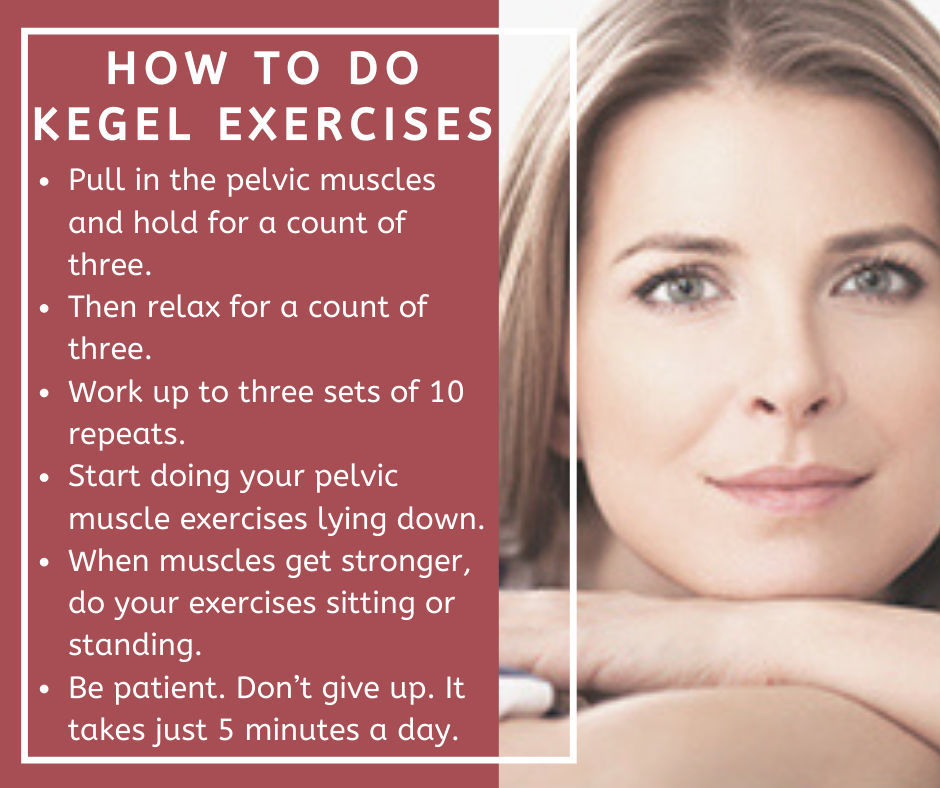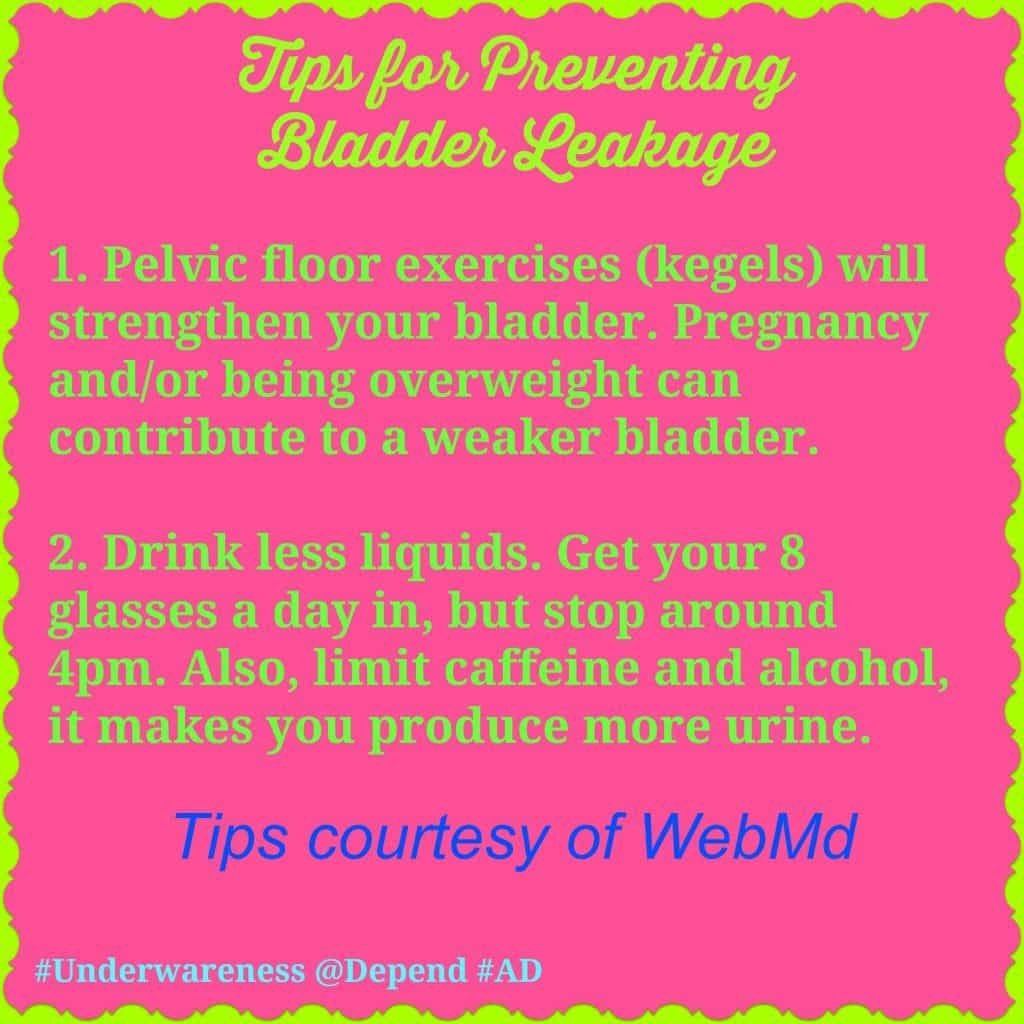Am I At A Higher Risk Of Incontinence At An Older Age
Your body constantly changes throughout your life. As you age, the muscles that support your pelvic organs can weaken. This means that your bladder and urethra have less support often leading to urine leakage. Your risk for developing incontinence as you age might be higher if you have a chronic health condition, have given birth to children, went through menopause, have an enlarged prostate or have had prostate cancer surgery. Its important to talk to your healthcare provider over time about the risks of incontinence and ways you can manage it without interference to your daily life.
Adult Diapers With Tabs
Tabbed adult diapers are a popular option in the incontinence products category. Diapers with tabs are ideal for men and women who manage heavy bladder or bowel leakage. One benefit to tab diapers is that the fit around the waist is adjustable. Another benefit to adult diapers with tabs is the option to change without having to take pants off.
Adult diapers with tabs come in two varieties: plastic-backed and cloth-like styles. Plastic-backed adult diapers are best for people who have bowel incontinence. Cloth-like adult diapers have a breathable material that helps maintain healthy skin and increases airflow.
When looking for adult diapers, consider your level of incontinence and what feels most comfortable for you.
A heavy-duty adult diaper to consider is the MEGAMAX Brief. MEGAMAX is currently the only 12-hour diaper on the market. MEGAMAX is the most absorbent and heavy-duty diaper for complete bladder and bowel incontinence. MEGAMAX is a waterproof, unisex, plastic-backed adult diaper that offers an extra-wide and extra-long core to contain the heaviest leaks.
Bladder Leakage Solutions Treatments & Remedies
Just because you experience bladder control issues does not mean you must resign yourself to embarrassing accidents. Here are tips to prevent and protect yourself from bladder leaks:
1. Stay on a scheduleMake a drink scheduleThough it may be tempting to drastically limit fluid intake for fear of leaking urine, this is not advised. Donât limit fluids to the point of dehydration. Instead, drink prescribed amounts throughout the day in order to avoid overstressing your bladder with a large amount of fluid all at once.
Make a âgoâ scheduleKeeping your bladder empty will go a long way in reducing little bladder leaks throughout the day. Use the bathroom on a fixed schedule, say every two hours. Be sure to go whether or not you feel the need to. That way you can reduce your chances of a bladder leak if you find yourself laughing, coughing, or lifting with a full bladder.
2. Get movingLosing weight can help ease bladder leakage by removing one of its root causes â being overweight. Even a daily walk around the block to get moving can go a long way in shedding some extra pounds. Learn more about how obesity and diabetes can cause incontinence and bladder leakage.
If you want to find out more, read our complete guide on pelvic floor exercises.
– Take a quiz to choose the best protection
Read Also: Weak Bladder Control After Childbirth
Tips For Living With Urinary Incontinence
With a little planning, you can manage your urinary incontinence so it doesnt affect your life too much. There are many products available to help you live with incontinence, such as pads, catheters or bedding protection. Some of these are subsidised by the government.
It can help to get into a routine. Plan for outings, make sure you have enough products and spare clothes in case you have an accident, and know how to find the nearest toilet.
Other tips include:
- Avoiding lifting. Lifting puts strain on your pelvic floor muscles, so avoid it wherever you can. When you do need to lift something, such as when picking up children or shopping bags, tighten your pelvic floor muscles before and during the lift.
- Drinking plenty of water. Many people with urinary incontinence avoid drinking fluids as they feel it causes more problems. However, limiting your fluid intake makes incontinence worse because it reduces your bladder’s capacity. Some medical conditions may require you to limit your fluid intake, so ask your doctor if youre unsure how much water you should drink each day.
- Avoiding certain foods. Spicy and acidic foods, such as curries and citrus fruits, can irritate the bladder and make symptoms worse.
- Download the National Public Toilet Map, which shows the location of more than 19,000 public and private public toilet facilities across Australia.
Do The Right Exercises

High-impact exercise and sit-ups put pressure on your pelvic floor muscles and can increase leaks.
To strengthen your pelvic floor to relieve symptoms, replace high-impact exercise, such as jogging and aerobics, with strengthening exercise, such as pilates.
Pilates strengthens your core muscles, which is beneficial for stress incontinence.
Recommended Reading: How To Heal A Bladder Infection Without Antibiotics
Drink Plenty Of Water
Drink 6 to 8 glasses of fluid a day unless your doctor advises you otherwise.
Many people with urinary incontinence avoid drinking fluids, as they feel it causes more problems. However, limiting your fluid intake makes incontinence worse, because it reduces your bladder’s capacity.
Not drinking enough fluid can also cause constipation or make it worse.
Find out which are the healthiest drinks.
Should I Drink Less Water Or Other Fluids If I Have Urinary Incontinence
No. Many people with urinary incontinence think they need to drink less to reduce how much urine leaks out. But you need fluids, especially water, for good health.
Women need 91 ounces of fluids a day from food and drinks.11 Getting enough fluids helps keep your kidneys and bladder healthy, prevents urinary tract infections, and prevents constipation, which may make urinary incontinence worse.
After age 60, people are less likely to get enough water, putting them at risk for dehydration and conditions that make urinary incontinence worse.12
Don’t Miss: Is A Bladder Scan An Ultrasound
Behavioral And Lifestyle Changes
Changing your lifestyle may help with bladder problems. Losing weight, quitting smoking, saying no to alcohol, choosing water instead of other drinks, and limiting drinks before bedtime can help with some bladder problems. Preventing constipation and avoiding lifting heavy objects may also help with incontinence. Even after treatment, some people still leak urine from time to time. There are bladder control products and other solutions, including disposable briefs or underwear, furniture pads, and urine deodorizing pills that may help.
Visit the National Institute of Diabetes and Digestive and Kidney Diseases for more information on urinary incontinence in men and urinary incontinence in women.
Fast Facts On Urinary Incontinence
- Urinary incontinence is more common in females than in males.
- There are a number of reasons why urinary incontinence can occur.
- Obesity and smoking are both risk factors for urinary incontinence.
Urinary incontinence is when a person cannot prevent urine from leaking out.
It can be due to stress factors, such as coughing, it can happen during and after pregnancy, and it is more common with conditions such as obesity.
The chances of it happening increase with age.
Bladder control and pelvic floor, or Kegel, exercises can help prevent or reduce it.
Treatment will depend on several factors, such as the type of incontinence, the patients age, general health, and their mental state.
Recommended Reading: Malignant Neoplasm Of Bladder Definition
Why Do I Leak Urine During My Workouts
Bladder leakage during your workout is due to a condition called Stress Urinary Incontinence . SUI is incontinence that occurs when you have a weak pelvic floor or sphincter muscle, and increased pressure is placed on your bladder. This can happen with things like sneezing, coughing, and, yes, certain forms of working out.
SUI occurs commonly with childbirth, but other conditions can also contribute to the condition. Chronic coughing, surgical procedures, menopause, and obesity can also contribute to SUI.
Dont Miss: Does A Bladder Infection Cause Incontinence
Myth #: Pads Are The Only Help Available
Youd be forgiven for thinking incontinence pads are the only way to manage your leaky bladder. Sanitary pads and incontinence towels are a familiar product for us women thanks to our menstrual cycles, so what difference does using one make for a bit of urine?
The answer is a lot of difference. Sure, some women are okay using these available products to manage their incontinence, but using them is not the only option. Pads and liners help women to cope, but as a long-term solution, may make you worry even more. Is your pad visible? Is there an odour? Has your pad leaked? These are all things to take into consideration – and if youre not comfortable, you cant go about your daily life with ease.
Also Check: Does Bph Cause Overactive Bladder
How To Prevent A Leaky Bladder
- Limit or avoid excess caffeine intake through coffee, tea, and carbonated beverages.
- Perform Kegel exercises on regular basis to maintain strength of pelvic floor muscles.
- Avoid fluid intake for several hours before bedtime.
- Limit fluid intake throughout the day, but keep hydrated.
- Avoid smoking as tobacco use increases risk of bladder cancer, which can cause bladder leaks.
- Maintain a healthy weight as obesity can lead to bladder leakage.
- Urinate after sexual intercourse to eliminate bacteria from the urethra.
- Limit or avoid spicy foods, acidic foods, and artificial sweeteners, as they increase fluid output.
- Use caution with diuretics to prevent bladder leakage from frequent urination.
Top Supplements For Leaky Bladder

If bladder leaks are disrupting your days and youre ready to take some practical steps that will make a BIG difference, supplements are a great starting point. Here are a few that are easy to find and can address your leaks from the root to get you some relief:
- Magnesium can help prevent the muscle spasms that lead to urge incontinence. Magnesium is an essential mineral for maintaining healthy muscles, reducing inflammation, optimizing estrogen levels, and more. You can get my recommended magnesium supplement HERE.
- Pumpkin Seed Oil has been shown to reduce inflammation and support a healthy bladder. It shows promise as a natural treatment for overactive bladder for women in menopause. You can find pumpkin seed oil supplements at health food stores or online just make sure you trust your source!
- Vitamin D deficiency can manifest itself as urinary incontinence, as well as a whole host of other symptoms . A majority of women are deficient in vitamin D to the extent that they will benefit from supplementing, and its an essential vitamin for bladder, pelvic, bone, and hormone health. All women over 40 should consider supplementing vitamin Dand you can get the best, most absorbable form HERE!
Recommended Reading: What Medicine For Bladder Infection
Limit Caffeine And Alcohol
Caffeine and alcohol have a diuretic effect on your body. That means they increase the amount of urine you produce. If youre having trouble controlling your bladder, consuming caffeinated beverages may be contributing to the problem.
To help manage your symptoms, consider limiting caffeine and alcohol, or avoiding them altogether. Coffee, tea, soda, chocolate, and certain medications are common sources of caffeine.
Why Does Pregnancy Cause Incontinence
During pregnancy, your body goes through a lot of physical changes. As your uterus stretches to hold the growing baby, a few things happen. Your bladder can be squished by the expanding baby, making your bladder hold less than before. You might experience an increased urgency to pee during pregnancy because your bladder cannot hold as much as before. This might become even more challenging towards the end of pregnancy when the baby is at its largest.
Another reason for incontinence during pregnancy is the weakening of your pelvic floor muscles. These muscles are the support structures for all of the organs in your pelvis. During pregnancy, they can be stretched and weakened as your uterus expands.
Read Also: Antibiotics For Uti Bladder Infection
Behavioral And Lifestyle Changes For Bladder Leakage Treatment
Bladder leakage treatment is based on the underlying cause and type of urine incontinence. Both men and women may face similar challenges within the treatment plan that may include urgency suppression, bladder training, and lifestyle changes.
A treatment plan usually begins with behavioral and lifestyle changes such as exercises for leaky bladder. Medications may be required alongside behavioral tasks to reduce muscle spasms or health conditions such as prostate enlargement. In severe cases, surgical procedures may be necessary.
What Are Kegel Exercises
Kegel exercises, also called Kegels or pelvic floor muscle training, are exercises for your pelvic floor muscles to help prevent or reduce stress urinary incontinence. Your pelvic floor muscles support your uterus, bladder, small intestine, and rectum.
Four in 10 women improved their symptoms after trying Kegels.9 Kegels can be done daily and may be especially helpful during pregnancy. They can help prevent the weakening of pelvic floor muscles, which often happens during pregnancy and childbirth. Your pelvic floor muscles may also weaken with age and less physical activity.
Some women have urinary symptoms because the pelvic floor muscles are always tightened. In this situation, Kegel exercises will not help your urinary symptoms and may cause more problems. Talk to your doctor or nurse about your urinary symptoms before doing Kegel exercises.
You May Like: Women’s Bladder Control Underwear
Pads And Other Urinary Incontinence Products For Daily Leaking
A simple yet effective way to manage a leaky bladder is to wear a protective pad or liner during the day.
There are specific pads available for bladder leakage, which are different than the ones youd wear during menstruation. For example, Poise Ultra Thin pads have thin, protective layers that are made specifically to absorb urine.
Results are fairly immediate but these devices arent for everyone, specifically those with pelvic infection, vaginal ulcerations, allergy to product materials, or those who cannot commit to using them regularly.
Disposable inserts, which are like tampons, are another way to prevent leakage. Poise makes one called Impressa.
There are also reusable underpants that are similar to disposable pads, but you can wash and wear them multiple times.
How Does The Urinary System Work
The urinary system consists of the kidneys, ureters, the bladder and urethra. The kidneys filter the blood to remove waste products and produce urine. The urine flows from the kidneys down through the ureters to the bladder. A ring of muscle squeezes shut to keep urine in the bladder and relaxes when we need to wee. The urine passes through another tube called the urethra to the outside when urinating .
Also Check: Can A Bladder Infection Cause Migraines
What Treatment Options Are Available If Urinary Incontinence Still Wont Go Away
Seeing a urogynecologist as early as possible can help ensure that you have a complete understanding of your condition and treatments options.
Both stress and urgency incontinence typically respond well to behavioral modifications, but if things are not improving, its best to get evaluated, says Dr. Lindo. This is why I always recommend seeing a specialist about your condition right away. You never want to play the guessing game with your health, especially when your condition affects your quality of life.
In addition, your doctor can recommend a pelvic floor physical therapy program. While Kegels can play an important role in alleviating urinary incontinence, Dr. Lindo says theyre performed incorrectly more than 80 percent of the time.
An incorrect Kegel will not help correct urinary incontinence, warns Dr. Lindo. Seeing a physical therapist who specializes in pelvic floor exercises can help ensure youre performing Kegels and other exercises correctly and truly strengthening your pelvic floor.
And if your condition continues to progress or worsen, your urogynecologist has expertise to perform testing and recommend a range of urinary incontinence treatment options and procedures that can help to correct your condition and address your specific situation.
Incontinence Liners & Pads

Incontinence pads are for individuals with light to moderate urinary incontinence. Pads, known as liners, come in various sizes and shapes. Some incontinence liners are rectangular, and others have a figure 8 shape. Most liners have a waterproof backing, so use them only in regular underwear. Many pads have an adhesive backing to adhere to regular underwear.
Men managing leakage from prostate issues may need to use male guards from time to time. Whether managing dribbles or lighter leaks, male guards can help.
DoubleStop is a reliable male guard men should consider for their incontinence needs. DoubleStop Guards are lightweight and discreet. The guards triangular shape offers more absorbency and coverage in the front, where most leaks occur. DoubleStop Guards offer more protection than store-brand male guards.
What about incontinence pads for women?
There are many brands of pads for women. Depending on the type of urinary incontinence and style, it can be hard to find the right pad. Women should consider absorbency, length, and width when selecting a pad. Pads that are too large will bunch up in the front and the rear. Pads that are too short will not provide enough coverage and may increase the chance of leaks.
Read Also: Urine Test For Bladder Infection
Solutions For A Leaky Bladder
Research has found that at least half of people with urinary incontinence dont discuss the condition with a health care provider. But theres no need to feel embarrassed. If you have a leaky bladder, youre definitely not alone. Bladder leakage, or urinary incontinence, affects women and men of all ages, though it becomes more common later in life.
And its definitely worth discussing, because of the many ways it can interfere with enjoying daily lifefrom exercise and travel to social outings and romance, says E. James Wright, M.D., director of urology at Johns Hopkins Bayview Medical Center.